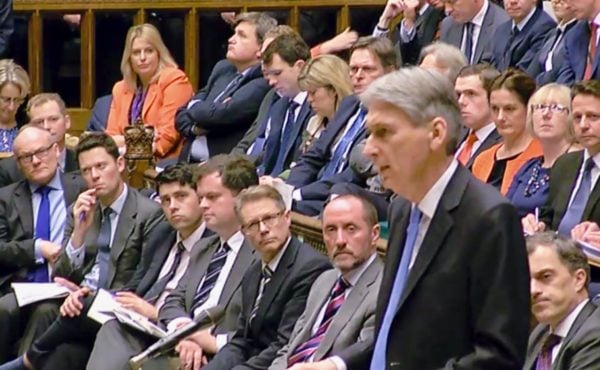
The Chancellor of the Exchequer Philip Hammond proposed an update to the Enterprise Investment Scheme (EIS) in the Autumn budget presented at the House of Commons today. The measures will increase the annual limit for individuals to £2 million – provided that anything over £1 million is invested in knowledge intensive companies. The annual EIS and Venture Capital Trust (VCT) limit on the amount of tax-advantaged investments a knowledge-intensive company may receive will be increased to £10 million. The update on EIS, a very popular tax program leveraged by investment crowdfunding platforms, forms part of the UK governments response to the Patient Capital Review.
 Expected to be introduced in the 2017-2018 Finance Bill, the revisions include:
Expected to be introduced in the 2017-2018 Finance Bill, the revisions include:
- Section 157 ITA of 2007 will be amended to increase the EIS investment limit for individuals to £2 million provided that that any amount over £1 million is invested in one or more knowledge-intensive companies
- Sections 173A and 292A of ITA 2007 will be amended to increase the annual investment limit for a knowledge-intensive company to £10 million
- The changes described above will include amendments to the operating costs conditions in sections 252A and 331A of ITA 2007 (definition of a knowledge-intensive company) for companies that have existed for less than 3 years
- The permitted maximum age rules contained in sections 175A, 280C and 294A of ITA2007 will be amended to allow a knowledge-intensive company to use the date from which its annual turnover exceeded £200,000, instead of the date of its first commercial sale, when determining the date from which the end of the initial investing period is calculated
Regarding Venture Capital Trust rules:
- from 6 April 2018 certain historic rules that provide more favourable conditions for some VCTs (“grandfathered” provisions) will be removed
- from 6 April 2018, VCTs will be required to invest at least 30% of funds raised in qualifying holdings within 12 months after the end of the accounting period
- from Royal Assent of the Finance Bill, a new-anti abuse rule will be introduced to prevent loans being used to preserve and return equity capital to investors. Loans will be have to be unsecured and will be assessed on a principled basis. Safe harbour rules will provide certainty to VCTs using debt investments that return no more than 10% on average over a five year period.
- with effect on and after 6 April 2019, the percentage of funds VCTs must hold in qualifying holdings will increase to 80% from 70%
- with effect on and after 6 April 2019 the period VCTs have to reinvest gains will be doubled from 6 months to 12 months
 Mark Brownridge, Director of the EISA, commented on the announced changes to the EIS program;
Mark Brownridge, Director of the EISA, commented on the announced changes to the EIS program;
“The EIS has received a huge vote of confidence from the government in today’s Budget. The doubling of the investment limits for technology and other “knowledge intensive” sectors demonstrates that the government recognizes the power of EIS to help companies startup and grow and is going to supercharge that in order to make the UK a leading worldwide power in the development of new technologies and innovative industries.”
Brownridge said the EISA made detailed presentations to HM Treasury in advance of the Autumn Budget as there had been intimations changes were under consideration. Brownridge added that a consultation paper would be made available “very soon” regarding a principles based approach on applying EIS funding eligibility and genuine risks.
“We see this as a sensible way forward for ensuring that EIS investment is only directed at genuine, entrepreneurial, growth businesses,” added Brownridge. “All in all, at first glance, today’s budget seems to be good news for EIS and SEIS startups, growth companies and entrepreneurs, for investors in these companies.”
 Additionally, HMRC is expected to commit to a 15 day turnaround for companies applying for EIS eligibility Advance Assurance by early next year, thus eliminating extensive backlogs – a sticking point for companies using the tax plan.
Additionally, HMRC is expected to commit to a 15 day turnaround for companies applying for EIS eligibility Advance Assurance by early next year, thus eliminating extensive backlogs – a sticking point for companies using the tax plan.
The reinforcement of EIS is an important policy position for the UK economy and small companies in general. Since the EIS was launched in 1993-1994, more than 26,000 companies have benefited from this tax exemption with approximately £16.2 billion being invested. That translates into many new jobs and supports an innovation based economy. Even when a company fails, new skillsets are earned as the bulk of EIS funds goes directly to job creation. In 2015-2016, 3470 companies qualified helping to raise £1.888 billion.
The EIS Association has created a helpful table so investors may compare the various options available for tax efficient investing.
A PDF version of the EISA Fact Sheet from the EISA is available here.

